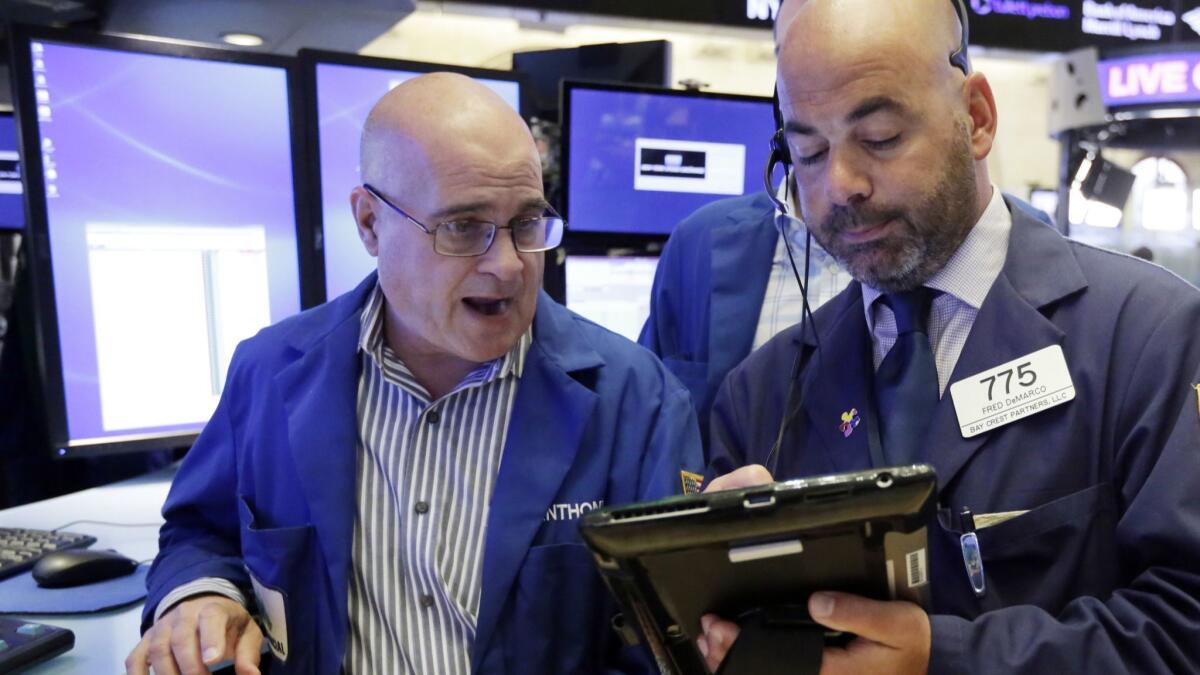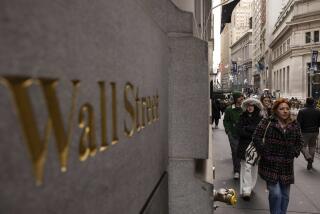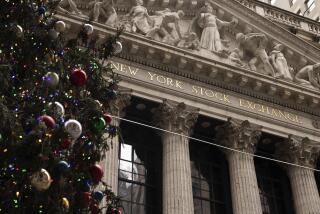Stocks waver along with U.S.-Canada trade talks

Stocks hardly budged Friday as the United States and Canada were unable to complete a trade deal, but the two sides intend to continue negotiating next week.
Energy companies slipped along with oil prices Friday, and high-dividend stocks also fell. Technology companies and retailers made some modest gains. Trading was very light ahead of the Labor Day holiday weekend.
Investors hoped Canada and the United States would finish the outlines of a revamped North American Free Trade Agreement pact this week after the United States and Mexico announced a preliminary agreement Monday. Right before the markets closed, U.S. Trade Representative Robert Lighthizer said talks will resume Wednesday.
President Trump said he is willing to make a deal with just Mexico, excluding Canada, but Wall Street is confident the final deal will include all three.
Katie Nixon, chief investment officer for Northern Trust Wealth Management, said Trump will probably submit the outlines of a U.S.-Canada trade deal to Congress soon. But the trade war between the United States and China may drag on for months, if not longer, and Nixon said that could stop businesses from investing and affect the economy and the stock market.
“These things will have to be resolved one way or another for investors to regain the kind of confidence it’s going to take to propel the markets meaningfully forward,” she said.
The Standard & Poor’s 500 index inched up 0.39 of a point to close at 2,901.52. The Dow Jones industrial average fell 22.10 points, or 0.1%, to 25,964.82. The Nasdaq composite rose 21.17 points, or 0.3%, to 8,109.54. The Russell 2000 index of smaller-company stocks rose 8.40 points, or 0.5%, to a record high of 1,740.75.
Ford declined 2.3% to $9.48 after reports that the automaker canceled plans to import a version of the Ford Focus that is made in China, citing the tariffs proposed by the Trump administration.
Otherwise there weren’t many developments on trade, and investors responded instead to the few remaining company earnings reports in the current cycle.
Gun and hunting and camping gear maker American Outdoor Brands skyrocketed 43.6% to $14.03. The company said sales picked up and it cut costs while offering fewer discounts. The stock erased big losses from earlier in the year.
Lululemon Athletica jumped 13.1% to $154.93 after it raised its forecasts for the rest of the year following a strong second quarter. Shares in the yoga gear maker have nearly doubled in value this year.
Discount retailer Big Lots sank 10.1% to $43.05 after its earnings and sales fell short of analysts’ projections.
Ulta Beauty jumped 6.4% to $260 after the company announced a partnership with Kylie Jenner’s Kylie Cosmetics. It said the brand will be available in its stores and online later this year.
The S&P 500 rose 3% for the month, and the Nasdaq jumped 5.7%.
Benchmark U.S. crude fell 0.6% on Friday to $69.80 a barrel in New York. Brent crude, used to price international oils, fell 0.5% to $77.42 a barrel in London.
Wholesale gasoline was unchanged at $2.14 a gallon. Heating oil fell 0.3% to $2.24 a gallon. Natural gas rose 1.5% to $2.92 per 1,000 cubic feet.
Bond prices rose early, but faded late in the day. The yield on the 10-year Treasury note remained at 2.86%.
Gold rose 0.1% to $1,206.70 an ounce. Silver slipped 0.3% to $14.56 an ounce. Copper fell 1.7% to $2.67 a pound.
The dollar rose to 110.97 yen from 110.05 yen. The euro fell to $1.1603 from $1.1663.
Argentina’s stock index jumped 9.7% after a spokesman for the International Monetary Fund said that country has the IMF’s “full support.” The Merval index has climbed over the last two days after the government asked for the early release of $50 billion in rescue funds.
The Merval is still down 2.5% this year, and the Argentine peso has been trading at all-time lows.






